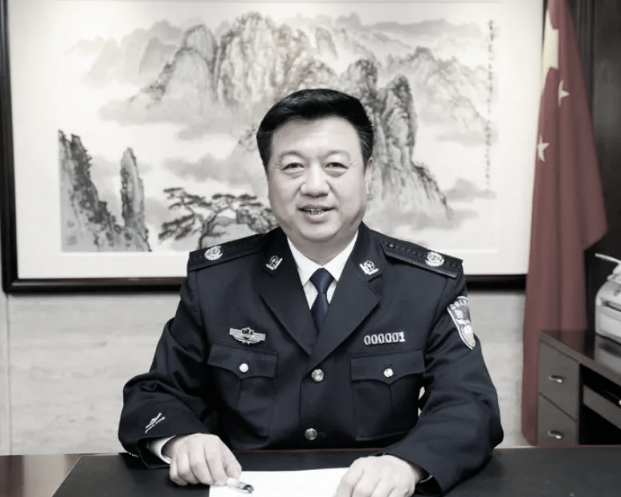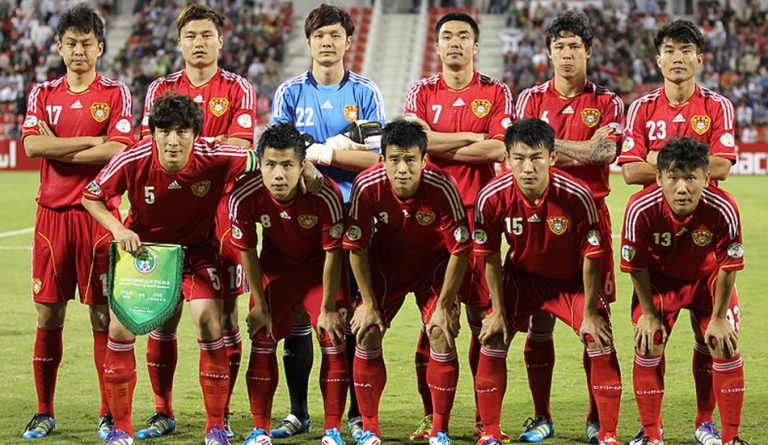A high-ranking Chinese Communist Party (CCP) official in the southern province of Guangdong has been sacked on corruption charges in the longstanding anti-graft campaign under leader Xi Jinping.
Announced by Party mouthpiece Xinhua on June 28, now-former Vice Chairman of the Guangdong branch of the Standing Committee, Li Chunsheng (李春生), has been dismissed from his post and expelled from the CCP.
Xinhua states the decision was made public by the Party’s Central Commission for Discipline Inspection in conjunction with the National Commission of Supervision.
Anti-corruption investigators determined that Li had accepted both money and gifts in the course of his duties to the country while simultaneously hosting banquets paid with public funds.
READ MORE
- Attacks on Independent Media in Hong Kong Showcase Factional Struggle Among China’s Top Leaders
- Chinese Police Investigated Over Attack on Female Diners in Tangshan
- China Removes All References to Marxism From State Council Guidelines, Leaving Only Xi Jinping Thought
Success
You are now signed up for our newsletter
Success
Check your email to complete sign up
In addition, the announcement charges that Li was provided a “private venue” by a “local business owner” while participating in travel and public receptions that put him at odds with his responsibilities as a core official in Guangdong Province.
The Chinese regime said Li was found “trading power for sex,” in addition to putting his foot on the scale in the Guangdong justice system, economic sector, and law enforcement divisions in exchange for “a huge amount of money and gifts.”
An earlier Xinhua message from December 2022 stated he had surrendered himself to the government following charges stemming from the investigation.
Factional background
According to website China Vitae, Li Chunsheng has spent the majority of his life as a CCP official. His rapid rise through the ranks beginning in the late 1990s and active participation in persecuting Falun Gong suggests he has ties to the factional network of former CCP leader Jiang Zemin, who began the brutal campaign against the traditional Chinese spiritual practice in 1999.
After studying at Henan University between 1979 and 1983, Li became Deputy Secretary of the Zhenping Party Committee in Henan, where he remained director of the Henan Juvenile Department until 1998.
Henan is a breadbasket province in central China.
Li was promoted rapidly in the early 2000s, becoming first a magistrate for the Henan People’s Court of Xin County (population 300,000), then the backwater county’s CCP secretary. Later, he was transferred to head the Party branch in Xinxiang, a city of 2.7 million in northern Henan.
Like many other officials in the Jiang era, Li’s career growth occurred around or after the now-deceased CCP general secretary ordered the massive persecution of Falun Gong and its 100 million adherents across China.
He rapidly rose the ranks of the regime’s enforcement organs in the years to follow.
By 2004, he was promoted to Director of the Public Security Department’s (PSD) “Political Department” of Henan Province and by 2006, Director of the Ministry of Public Security’s (MPS) Human Resources Training Bureau.
In 2008, Li rose to the level of the MPS Political Department Deputy Director. From 2013 until the time of his purge, he held a variety of titles, including director of the Guangdong PSD, secretary of the PSD’s Party committee, and then vice-governor of the Guangdong Provincial CCP Standing Committee.
Complicity in persecution
According to China analysts, Xi’s decadelong anti-corruption campaign is largely directed at the Jiang faction, which held de facto power during the 2000s and remained highly influential in Chinese politics even after Xi took office in 2012.
Because the persecution of Falun Gong is a core aspect of Jiang’s political legacy, whether an official purged by the Xi leadership is a Jiang faction associate can often be determined by the extent to which he or she took part in the campaign.
In a 2018 article published by Minghui, a Falun Gong website that specializes in reporting on the persecution based on evidence and testimony received directly from inside China, Li Chunsheng was named as a member of the infamous “610 Office” in connection to the abduction and detention of four female Falun Gong practitioners in Huarong County in Hunan Province.
During this period, Li Chunsheng held his rank and positions in Guangdong.
The 610 Office was a CCP “leading group” formed by Jiang Zemin in June 1999 to orchestrate the persecution of Falun Gong, which began that July.
Structural reforms announced under the Xi leadership in 2018 disbanded the central 610 Office by mid-2019, but the 24-year-long persecution of Falun Gong still continues, with the 610 Office’s functions being taken over by local public security bureaus.
In October 2021, Fu Zhenghua, former leader of the 610 Office who later served as China’s Justice Minister from 2018 to 2020, was dismissed from his post and expelled from the Party in April 2022 and handed a suspended death sentence in September of the same year.
Other Jiang factionalists who served as heads or deputy heads of the 610 Office, such as Sun Lijun, who was investigated together with Fu, and Li Dongsheng, were also sentenced for corruption, and in Sun’s case, political crimes.
A 2021 announcement published by the Economic Daily, a state-run newspaper, said that Li Chunsheng’s 2003 appointment in Henan was also as a member of the Political and Legal Affairs Commission, a particular arm of the regime that has seen numerous senior members hit by Xi Jinping’s campaign.
The persecution of Falun Gong in Xinxiang
Li Chunsheng’s position as secretary of Xinxiang City’s Party Committee is notable because Xinxiang has been a hotbed of persecution against Falun Gong.
In a search of Minghui, Xinxiang appears 406 times starting in 2001.
One 2004 Minghui article is a photo report of persecution camps in the area that masquerade as normal prisons and clothing factories, which include Shibalihe, a notoriously brutal women’s camp where multiple rapes have been reported, and men’s camps that were said to house imprisoned practitioners imported from across mainland China.
The conditions at Shibalihe were described in a 2003 article on the torture and murder of Guan Ge as, “There is no personal freedom at all at the labor camp. Surveillance cameras are everywhere. The police assigned three to four people to monitor determined practitioners around the clock. The police often beat up practitioners late at night.”
The focus of the anti-Falun Gong campaign has always been to “transform” the practice’s adherents, having them renounce their faith and swear an oath to walk the path of atheism and Marxism while under the duress of psychological manipulation and extreme torture.
Minghui’s report stated Guan Ge and several other practitioners were first tortured with electric shock batons by drug addicts housed at the facility.
When the batons would not work, the thugs used the politely-termed method of “strapped clothes,” which refers to using a straight jacket to bind the arms behind the back before pulling them over the head and the front of the body, destroying the bones and sockets.
After the arms and shoulders have been ruined, the bent and broken limbs are bound to the victim’s legs, where they are then hung from the window as if a parcel.












